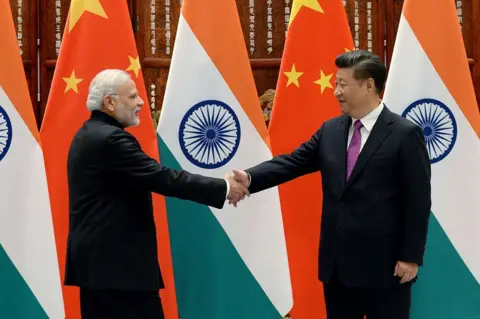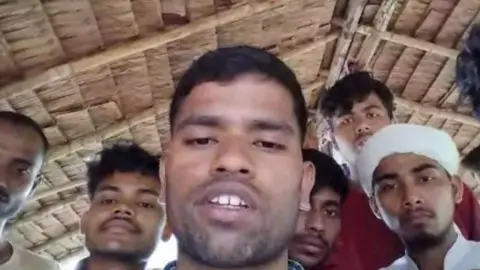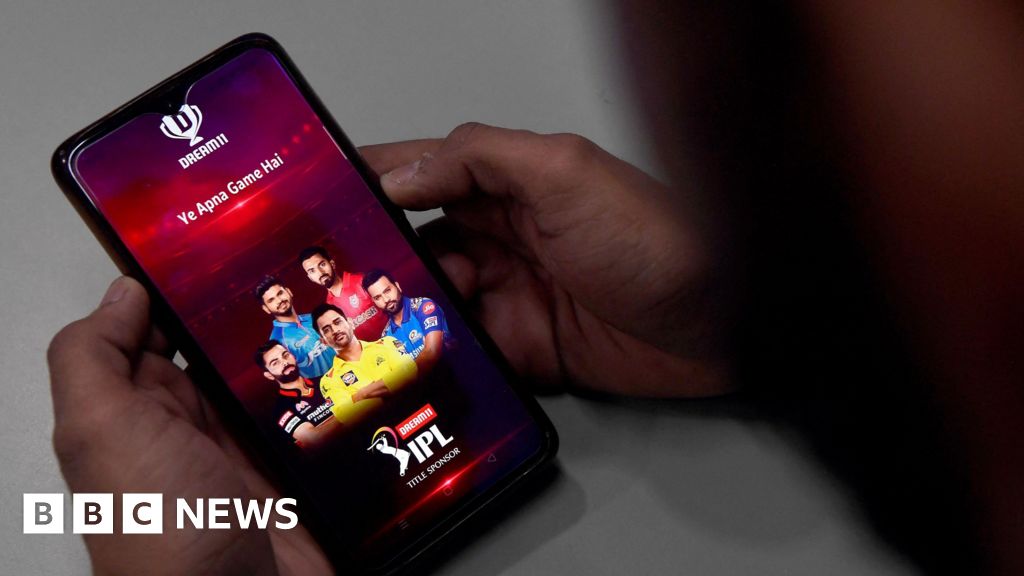The Indian government has issued a stern warning to Sotheby's in Hong Kong, advocating for the cancellation of an auction featuring jewels believed to be associated with the remains of Buddha. Scheduled for Wednesday, this auction includes treasures that were discovered alongside bone fragments of the revered figure over a century ago. India's Ministry of Culture is firmly opposing the sale, articulating that it contravenes both Indian and international laws, as well as United Nations conventions, and declaring the jewels as sacred relics. This situation has been met with backlash from Buddhists and art historians around the world.
The ministry took to Instagram to communicate its demands and shared a letter sent to Sotheby's and Chris Peppé, descendant of the original excavator, William Claxton Peppé. The letter asserted that Peppé “lacks authority” to sell these historical pieces and accused Sotheby's of engaging in “continued colonial exploitation.” The auction is taking place in light of significant historical context—William Peppé unearthed these items in 1898 in Piprahwa, an area now within Uttar Pradesh, India. Among the findings were almost 1,800 gemstones, including rubies and sapphires, preserved in a brick chamber believed to hold immense cultural significance.
The relics initially gathered by Peppé were turned over to the colonial Indian government, with many later forming part of various museums, while a small fraction remained within the Peppé family. India's Ministry of Culture argues that the characterization of these jewels as “duplicates” is misleading, asserting they are part of the country's "inalienable religious and cultural heritage." The ministry has contested the claim of custodianship by Peppé, stating that those involved do not possess the authority to sell or misappropriate these culturally significant items.
Further complicating the situation, the ministry is demanding that both Sotheby’s and Peppé disclose records of the jewels’ ownership. Non-compliance could lead to legal actions in both India and Hong Kong for breaching cultural heritage laws, alongside a public campaign against Sotheby’s for perpetuating colonial injustices. Peppé has acknowledged the family's attempts to find a way to properly donate the relics, emphasizing the auction as a fair method to transfer the jewels to the Buddhist community.
The gems have been prominently displayed in exhibitions, notably at The Met, and have garnered attention on a newly launched family website aimed at presenting their research. However, the Indian Ministry disputes the rental of relics for profit, arguing such practices undermine the responsibility to protect cultural heritage.
The controversy continues to unfold as the auction date approaches, with implications for heritage laws and cultural sensitivities for communities worldwide.
The ministry took to Instagram to communicate its demands and shared a letter sent to Sotheby's and Chris Peppé, descendant of the original excavator, William Claxton Peppé. The letter asserted that Peppé “lacks authority” to sell these historical pieces and accused Sotheby's of engaging in “continued colonial exploitation.” The auction is taking place in light of significant historical context—William Peppé unearthed these items in 1898 in Piprahwa, an area now within Uttar Pradesh, India. Among the findings were almost 1,800 gemstones, including rubies and sapphires, preserved in a brick chamber believed to hold immense cultural significance.
The relics initially gathered by Peppé were turned over to the colonial Indian government, with many later forming part of various museums, while a small fraction remained within the Peppé family. India's Ministry of Culture argues that the characterization of these jewels as “duplicates” is misleading, asserting they are part of the country's "inalienable religious and cultural heritage." The ministry has contested the claim of custodianship by Peppé, stating that those involved do not possess the authority to sell or misappropriate these culturally significant items.
Further complicating the situation, the ministry is demanding that both Sotheby’s and Peppé disclose records of the jewels’ ownership. Non-compliance could lead to legal actions in both India and Hong Kong for breaching cultural heritage laws, alongside a public campaign against Sotheby’s for perpetuating colonial injustices. Peppé has acknowledged the family's attempts to find a way to properly donate the relics, emphasizing the auction as a fair method to transfer the jewels to the Buddhist community.
The gems have been prominently displayed in exhibitions, notably at The Met, and have garnered attention on a newly launched family website aimed at presenting their research. However, the Indian Ministry disputes the rental of relics for profit, arguing such practices undermine the responsibility to protect cultural heritage.
The controversy continues to unfold as the auction date approaches, with implications for heritage laws and cultural sensitivities for communities worldwide.






















